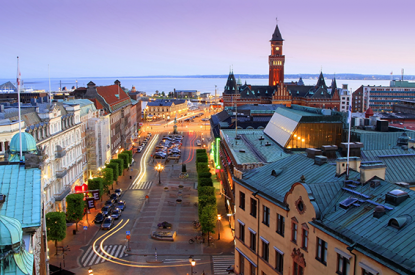Interactive
Sweden – Gambling participation in decline as state providers dominate online market
By William - 9 December 2019
Gambling participation has fallen since the liberalisation of the online gambling market at the beginning of 2019, according to a recent survey conducted by Novus on behalf of the Swedish gambling authority, Spelinspektionen.
Of the 1,600 participants in the gambling study, 60 per cent said they had gambled in the past 12 months. This represents a decrease of six percent on the previous year. The survey, which began in 2013, has shown a steady decline in participation since the study was first carried out.
Three out of 10 interviewees stated that they never won, with 18 per cent citing the low level of confidence in the gambling market as the cause. In 2015, only 15 per cent of respondents cited this as a reason, whilst in 2018 the share was 22 per cent.
The claim not to gamble due to “too much advertising” has risen to eight per cent and has doubled year-on-year. The licensing conditions for online gambling providers in Sweden include provisions that require licensees to be “moderate” in advertising. Nonetheless, the Swedish government, specifically the Minister of Social Security, Ardalan Shekarabi, has raised the possibility of a total ban on gambling advertising. In April, Shekarabi announced in a press release that the implementation of such a ban on advertising is conceivable this year or next.
The survey revealed that 37 per cent of players believe that operators are taking responsibility for protecting players, down from 40 per cent in 2018, and an eight per cent decline from 2014. Two per cent of players believe they have gambled excessively in the past year, though this rises to five per cent when respondents were asked whether friends or family were doing so.
Lottery remains the most popular form of gambling, with 75 per cent of gamblers saying they had played in the past year. Other numerical or draw-based games followed, played by 50 per cent, then betting on horse racing, which was played by 38 per cent. Sports betting was played by 21 per cent of those surveyed. Retail still dominates in Sweden, with 48 per cent of gamblers using betting shops to play, ahead of mobile devices, 29 per cent, and computers, 19 per cent.
The liberalisation of online gambling in Sweden does not appear to have spurred the online gambling market with the market still dominated by state providers. When asked where they played on the internet, 63 per cent of players said they were doing so at state-owned Svenska Spel, a three per cent increase on last year. This was followed by the state operator for online horse betting ATG (Trav Och Gallop) with 17 per cent. Four per cent of respondents said they were playing online at Bet365 and three per cent at Unibet.
Private providers have complained about the tough license terms and reported negative sales figures in the third quarter of 2019. The Gaming Innovation Group (GiG), for example, reported figures 19 per cent lower in the third quarter of 2019 relative to the same quarter of the previous year.
Sales of the Betsson Group declined by 11 per cent to around €120m euros. As a result, private gambling providers are reducing their activities in the Swedish market and moving them to other markets, as Betsson’s CEO, Pontus Lindwall, explained: “Since the conditions in Sweden were not right for large marketing investments, the activities were reduced and shifted to other markets where they bring better returns.”
The survey also showed that three per cent of all online gamers had played on a site without a Swedish license. 80 per cent said they had resorted to illegal offers and 17 per cent were unsure. 95 per cent of the respondents said they did not know how to tell if a gambling provider had a license in Sweden. More than half of the respondents also said they were not aware of the self-exclusion register, Spelpaus.se, which allows players to exclude themselves centrally from all licensed online casinos. However, in its quarterly report for the third quarter of 2019, the Swedish gambling authority observed an increase in registrations of 11 per cent compared to the previous quarter.


